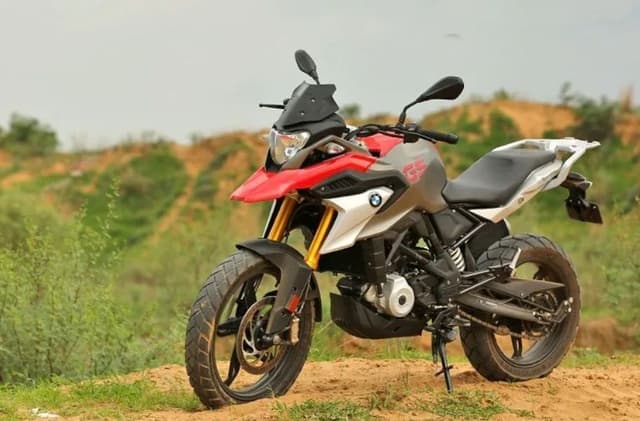2019 Frankfurt Motor Show: BMW i Hydrogen Next Unveiled

Highlights
At the 2019 Frankfurt Motor Show, BMW revealed the i Hydrogen Next fuel cell development vehicle. The company introduced this car on the assumption that, in future, various alternative types of drive systems will exist alongside one another. Hydrogen, along with plug-in hybrids and electric cars will underline the BMW Group's commitment to achieving zero-emission mobility as part of its long term strategy. In 2022, the BMW Group is planning to present the next generation of hydrogen fuel cell electric drive systems in a small-series vehicle based on the current BMW X5. The BMW i Hydrogen Next provides an initial glimpse of what that very model. The BMW Group would start offering fuel cell vehicles for customers in 2025 at the earliest, but the timing very much depends on market requirements and overall conditions.

BMW Group would start offering fuel cell vehicles for customers in 2025 at the earliest
The i Hydrogen Next demonstrates that this technology can be integrated effectively into production car and hence the X5 is the perfect car to build it on. But there are a few modifications made to the car. At the front end, the modifications are most clearly visible in the distinctive BMW i Blue patterning on the bonnet. This patterning reappears in three-dimensional form in the air intakes. The pattern's shape and colour form a dynamic flow across the front end and flanks of the Mineral White body. The detailing on the light-alloy wheels too brings out the BMW DNA. At the rear are i Blue diffuser elements. Their blanked off design without exhaust tailpipes assures you that the car's drive system produces zero local emissions.

The absence of exhaust tailpipes assures you that the car's drive system produces zero local emissions
The BMW Group and Toyota Motor Corporation joined forces in 2013 to co-develop a drive system using hydrogen fuel cell technology. Since 2015, the BMW Group's research wing has been testing a small fleet of prototype BMW 5 Series GT hydrogen fuel cell vehicles powered by a jointly developed drive system with a Toyota fuel cell stack. In 2016, the two companies signed a product development partnership agreement. Since then they have been working together on future generations of fuel cell drive systems and on scalable, modular components for hydrogen fuel cell vehicles.
In January 2017, the BMW Group and Toyota teamed up with eleven leading energy, transport and industrial companies to launch a global initiative known as the Hydrogen Council. Its aim is to forge a united vision and push ahead with the long-term ambition of a hydrogen-fuelled energy revolution. As of June 2019, the Hydrogen Council has grown to 60 member companies.
Related Articles
Latest News
Popular BMW Models
 BMW XMEx-Showroom Price₹ 2.6 - 3.15 Crore
BMW XMEx-Showroom Price₹ 2.6 - 3.15 Crore BMW i7Ex-Showroom Price₹ 2.03 - 2.13 Crore
BMW i7Ex-Showroom Price₹ 2.03 - 2.13 Crore BMW X7Ex-Showroom Price₹ 1.27 - 1.33 Crore
BMW X7Ex-Showroom Price₹ 1.27 - 1.33 Crore BMW M4Ex-Showroom Price₹ 1.53 - 1.89 Crore
BMW M4Ex-Showroom Price₹ 1.53 - 1.89 Crore BMW M5Ex-Showroom Price₹ 1.99 Crore
BMW M5Ex-Showroom Price₹ 1.99 Crore BMW M8Ex-Showroom Price₹ 2.44 - 2.55 Crore
BMW M8Ex-Showroom Price₹ 2.44 - 2.55 Crore BMW X3Ex-Showroom Price₹ 61.9 - 87.7 Lakh
BMW X3Ex-Showroom Price₹ 61.9 - 87.7 Lakh BMW Z4Ex-Showroom Price₹ 89.3 Lakh
BMW Z4Ex-Showroom Price₹ 89.3 Lakh BMW iXEx-Showroom Price₹ 1.21 Crore
BMW iXEx-Showroom Price₹ 1.21 Crore BMW X1Ex-Showroom Price₹ 49.5 - 68.5 Lakh
BMW X1Ex-Showroom Price₹ 49.5 - 68.5 Lakh BMW 5 SeriesEx-Showroom Price₹ 72.9 Lakh
BMW 5 SeriesEx-Showroom Price₹ 72.9 Lakh BMW 7 SeriesEx-Showroom Price₹ 1.82 - 1.85 Crore
BMW 7 SeriesEx-Showroom Price₹ 1.82 - 1.85 Crore BMW M2Ex-Showroom Price₹ 1.03 Crore
BMW M2Ex-Showroom Price₹ 1.03 Crore BMW 3 SeriesEx-Showroom Price₹ 62.6 - 74.9 Lakh
BMW 3 SeriesEx-Showroom Price₹ 62.6 - 74.9 Lakh BMW 3 Series Gran LimousineEx-Showroom Price₹ 60.6 - 62.6 Lakh
BMW 3 Series Gran LimousineEx-Showroom Price₹ 60.6 - 62.6 Lakh BMW i4Ex-Showroom Price₹ 72.5 - 77.5 Lakh
BMW i4Ex-Showroom Price₹ 72.5 - 77.5 Lakh BMW 2 Series Gran CoupeEx-Showroom Price₹ 43.9 - 46.9 Lakh
BMW 2 Series Gran CoupeEx-Showroom Price₹ 43.9 - 46.9 Lakh BMW X4Ex-Showroom Price₹ 71.9 - 96.2 Lakh
BMW X4Ex-Showroom Price₹ 71.9 - 96.2 Lakh BMW X5 MEx-Showroom Price₹ 2.08 Crore
BMW X5 MEx-Showroom Price₹ 2.08 Crore BMW X5Ex-Showroom Price₹ 96 Lakh - 1.1 Crore
BMW X5Ex-Showroom Price₹ 96 Lakh - 1.1 Crore BMW iX1Ex-Showroom Price₹ 66.9 Lakh
BMW iX1Ex-Showroom Price₹ 66.9 Lakh BMW 6 Series Gran TurismoEx-Showroom Price₹ 73.5 - 78.9 Lakh
BMW 6 Series Gran TurismoEx-Showroom Price₹ 73.5 - 78.9 Lakh BMW ix1 LEx-Showroom Price₹ 17.99 - 20 Lakh
BMW ix1 LEx-Showroom Price₹ 17.99 - 20 Lakh BMW i5Ex-Showroom Price₹ 1.19 Crore
BMW i5Ex-Showroom Price₹ 1.19 Crore














